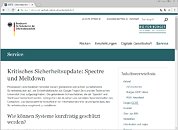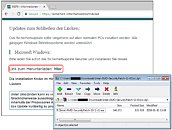Swissbit Intros iShield Key 2 Hardware Authenticator
Swissbit, a leading manufacturer of storage and security solutions, announces the launch of the iShield Key 2, the next generation of its hardware authenticators. Powered by an NXP chip, the new product family delivers phishing-resistant authentication for enterprises and public sector organizations worldwide, offering a wide range of models and feature sets.
At its core, the iShield Key 2 series is built on the FIDO2 standard, supporting passwordless authentication with market-leading capacity for up to 300 Passkeys. The Pro versions expand functionality to include HOTP and TOTP for generating one-time passwords and PIV for smart card integration. Setting new standards, the iShield Key 2 MIFARE variant uniquely combines digital and physical access control in a single device. This enables efficient authentication for both IT systems and physical infrastructure such as buildings or secure printing environments. For customers with the highest security requirements, a FIPS 140-3 Level 3 certified version is also available. All models are housed in a compact, lightweight, and rugged industrial-grade casing - engineered and manufactured at Swissbit's facility in Berlin, Germany.
At its core, the iShield Key 2 series is built on the FIDO2 standard, supporting passwordless authentication with market-leading capacity for up to 300 Passkeys. The Pro versions expand functionality to include HOTP and TOTP for generating one-time passwords and PIV for smart card integration. Setting new standards, the iShield Key 2 MIFARE variant uniquely combines digital and physical access control in a single device. This enables efficient authentication for both IT systems and physical infrastructure such as buildings or secure printing environments. For customers with the highest security requirements, a FIPS 140-3 Level 3 certified version is also available. All models are housed in a compact, lightweight, and rugged industrial-grade casing - engineered and manufactured at Swissbit's facility in Berlin, Germany.






















